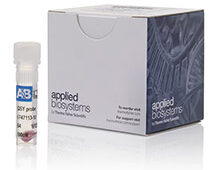 EUROIMMUN, a PerkinElmer company, announces that its EUROIMMUN Anti-Dengue Virus NS1 Type 1-4 ELISA (IgG) (research use only) was cited by the U.S. Centers for Disease Control and Prevention (CDC) as part of the two-step testing algorithm guidance for pre-vaccination screening for the Dengvaxia vaccine that is used to prevent future dengue disease. According to the CDC MMWR publication, the Dengvaxia vaccine will be available this year for children and adolescents between the ages of 9 and 16 who have laboratory-confirmed previous dengue virus infection and are living in an area where dengue is endemic.
EUROIMMUN, a PerkinElmer company, announces that its EUROIMMUN Anti-Dengue Virus NS1 Type 1-4 ELISA (IgG) (research use only) was cited by the U.S. Centers for Disease Control and Prevention (CDC) as part of the two-step testing algorithm guidance for pre-vaccination screening for the Dengvaxia vaccine that is used to prevent future dengue disease. According to the CDC MMWR publication, the Dengvaxia vaccine will be available this year for children and adolescents between the ages of 9 and 16 who have laboratory-confirmed previous dengue virus infection and are living in an area where dengue is endemic.
Dengue disease is caused by four distinct, but closely related dengue viruses (DENV-1–4), which are part of the same group of vector-borne RNA viruses as the Zika virus. Antibodies formed against flaviviruses like dengue and Zika can cross-react and be detected by serological assays. However, because eligibility for the Dengvaxia vaccine requires proof of prior dengue infection, an assay that can measure virus-specific antibodies for dengue, such as the EUROIMMUN Anti-Dengue Virus NS1 Type 1-4 ELISA, is needed.
“The EUROIMMUN US organization is committed to supporting the efforts of the CDC in addressing dengue disease in Puerto Rico by providing high-quality testing, scalable automation solutions and reliable service,” said Greg Stock, general manager of EUROIMMUN US. “We are thankful to our innovative scientists who continue to develop unique diagnostic solutions to help address public health threats, such as dengue and many other emerging infectious diseases.”
In 2019, more than 3 million dengue cases were reported from countries in South, Central and North America, which was the highest number on record. The number of cases decreased in 2020 and 2021, though according to the World Health Organization, the COVID-19 pandemic may have limited some countries in their ability to report the number of dengue cases. In the United States and its territories, dengue is endemic in Puerto Rico, American Samoa, the U.S. Virgin Islands, the Federated States of Micronesia, the Republic of Marshall Islands and the Republic of Palau.
The EUROIMMUN Anti-Dengue Virus NS1 Type 1-4 ELISA (IgG) is based on recombinant virus-specific NS1 antigen of types 1-4. It is authorized for research use only in the United States and can be used with several automated workflow solutions offered by EUROIMMUN.
For more information about the EUROIMMUN Anti-Dengue Virus NS1 Type 1-4 ELISA (IgG) and its applications in pre-vaccination screening for the Dengvaxia vaccine, visit the webpage here.





Tell Us What You Think!